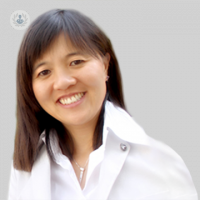Common questions about braces and orthodontics
Written by:When thinking about having braces, many factors should be considered, which is why talking to an orthodontist who offers holistic care is a great idea. If you too would like braces, or if you have a child who might benefit from them, this article may help clarify any doubts that you may have.

We got in contact with Dr Moira Wong, a highly experienced orthodontist and founder of the reputable Moira Wong Orthodontics clinic, to find out the answers to some frequently asked questions regarding braces. Find out what age is best to have them, whether they hurt, how much they can change how your face looks and what foods should be avoided whilst wearing them.
What age is best for braces?
I usually like to see patients for an initial consultation around the age of 8 years old. In the US, the American Association of Orthodontists recommend no later than 7. The reason for that is because at this stage you can start to anticipate how the teeth and jaws are going to grow over the next 5 years. You can diagnose any problems that may occur and determine if there is any early orthodontics that can be carried out to reduce the severity of the jaws and the teeth. For example, if mild or moderate crowding is diagnosed following a space analysis, expansion might be an option at this stage. If the jaws are growing incorrectly, we can fit appliances to encourage more favourable growth to improve the profile.
There’s a myth that orthodontists should not see children until all the adult teeth come through. This has led to patients being referred to me late when they have been waiting for teeth to come through that will never come through because they are actually impacted and need orthodontic treatment to help bring them into the mouth.
We should diagnose patients early and this allows us to advise patients where early treatment is not necessary and to offer treatment to patients that have specific issues that can be improved at this age.
Are braces painful?
Usually when braces are fitted, the braces initially feel unfamiliar a little like getting new shoes. Usually teeth feel tender on chewing and this improves over the first week. When they’re first fitted, they are not usually painful, but can feel tender on biting into hard foods and we recommend painkillers before eating during the first couple of days. I usually advise paracetamol or ibuprofen in the first 2 to 3 days when eating harder foods. Afterwards, this tenderness tends to resolve.
Will it change the overall appearance of my face?
In terms of orthodontic treatment, it changes the appearance of the smile and growth enhancing appliances can improve the facial profile. As a result, teeth in a healthy position tend to also coincide with improvement in appearance also.
How much can braces fix an asymmetric jaw?
This depends on the degree of asymmetry, if it’s mild, you can position the teeth in a way that makes it appear less asymmetric. If there’s a moderate or severe discrepancy, both orthopaedic surgery and orthodontic treatment may be necessary. It’s something we typically do on a day-to-day basis. I work with a team approach with a maxillofacial surgeon to plan the correct course of treatment and working together, we correct jaw deformities as well as crooked teeth.
Can I eat normally with braces?
In the first few days, teeth are tender, I advise cooked soft food. After that, normal foods can be eaten. Of course, I advise that sweet and sticky foods are avoided, and that sugary fizzy drinks are avoided because the combination between sugar and acid can leave marks on teeth.
If you will require orthodontic or orthopaedic jaw care for you of your children, we recommend getting in contact with Dr Moira Wong a highly-esteemed orthodontist. Click here to visit her Top Doctors profile today for information on appointment availability.


